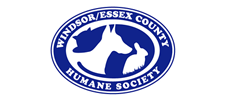Session G: Ecomuseums and the Lac La Croix Indigenous Ponies: Challenges and suggestions for moving forward.
Sub-theme
Practice
Keywords
Lac La Croix Indigenous Ponies, Ecomuseums, animal-human relationships, Indigenous communities, decolonized
Start Date
12-10-2018 4:30 PM
End Date
12-10-2018 5:45 PM
Abstract
Free roaming, partially domesticated and wild horses/ponies like the Lac La Croix Indigenous Ponies (LLCIP) are culturally integral to various communities across Canada. Snowshoe and Starblanket (2016) highlighted the resilience that these ponies have demonstrated in the face of adversity, and the importance of community-based protection efforts to support biological and cultural preservation strategies.
Described as “museums without walls,” ecomuseums are locally organized, community-driven, and formed around concepts of sustainable relationships with the natural world (Saskatchewan Ecomuseum Initiative, 2016). They are typically situated in rural areas and focus on connections to local history, physical geographic features, natural resources/habitats, and agricultural practices (Borrelli & Davis, 2012). Ecomuseums formed by communities can further engage with participatory citizen science and living laboratory approaches. Indigenous and other communities that are focused on animal-human and more-than-human relationships could form ecomuseums as potential models to support initiatives. Currently, no Indigenous-led ecomuseums exist in Canada. The development of an LLCIP ecomuseum would open doors to strengthen animal-human relationships and could be used by interested Indigenous communities. I discuss one example of an NGO (grass roots organization) build around the LLCIP that expressed an interest in the ecomuseum model. I present the challenges that were encountered due to the restrictions of a ‘western’ model and make suggestions for changes needed to form this specific Indigenous-led ecomuseum.
The specific NGO is made up of indigenous scholars, elders and community members, with an interest in a decolonized ecomuseum model to be formed around the LLCIP. The NGO is rooted in the principles of protection, promotion, and preservation of the ponies and their cultural history, with the goal of locally implementing the model to serve as an exemplar for renewing relationships with Indigenous and more-than-human communities. This is an exciting opportunity to be explored through potentially developing new and decolonized ecomuseum approaches.
Session G: Ecomuseums and the Lac La Croix Indigenous Ponies: Challenges and suggestions for moving forward.
Free roaming, partially domesticated and wild horses/ponies like the Lac La Croix Indigenous Ponies (LLCIP) are culturally integral to various communities across Canada. Snowshoe and Starblanket (2016) highlighted the resilience that these ponies have demonstrated in the face of adversity, and the importance of community-based protection efforts to support biological and cultural preservation strategies.
Described as “museums without walls,” ecomuseums are locally organized, community-driven, and formed around concepts of sustainable relationships with the natural world (Saskatchewan Ecomuseum Initiative, 2016). They are typically situated in rural areas and focus on connections to local history, physical geographic features, natural resources/habitats, and agricultural practices (Borrelli & Davis, 2012). Ecomuseums formed by communities can further engage with participatory citizen science and living laboratory approaches. Indigenous and other communities that are focused on animal-human and more-than-human relationships could form ecomuseums as potential models to support initiatives. Currently, no Indigenous-led ecomuseums exist in Canada. The development of an LLCIP ecomuseum would open doors to strengthen animal-human relationships and could be used by interested Indigenous communities. I discuss one example of an NGO (grass roots organization) build around the LLCIP that expressed an interest in the ecomuseum model. I present the challenges that were encountered due to the restrictions of a ‘western’ model and make suggestions for changes needed to form this specific Indigenous-led ecomuseum.
The specific NGO is made up of indigenous scholars, elders and community members, with an interest in a decolonized ecomuseum model to be formed around the LLCIP. The NGO is rooted in the principles of protection, promotion, and preservation of the ponies and their cultural history, with the goal of locally implementing the model to serve as an exemplar for renewing relationships with Indigenous and more-than-human communities. This is an exciting opportunity to be explored through potentially developing new and decolonized ecomuseum approaches.




